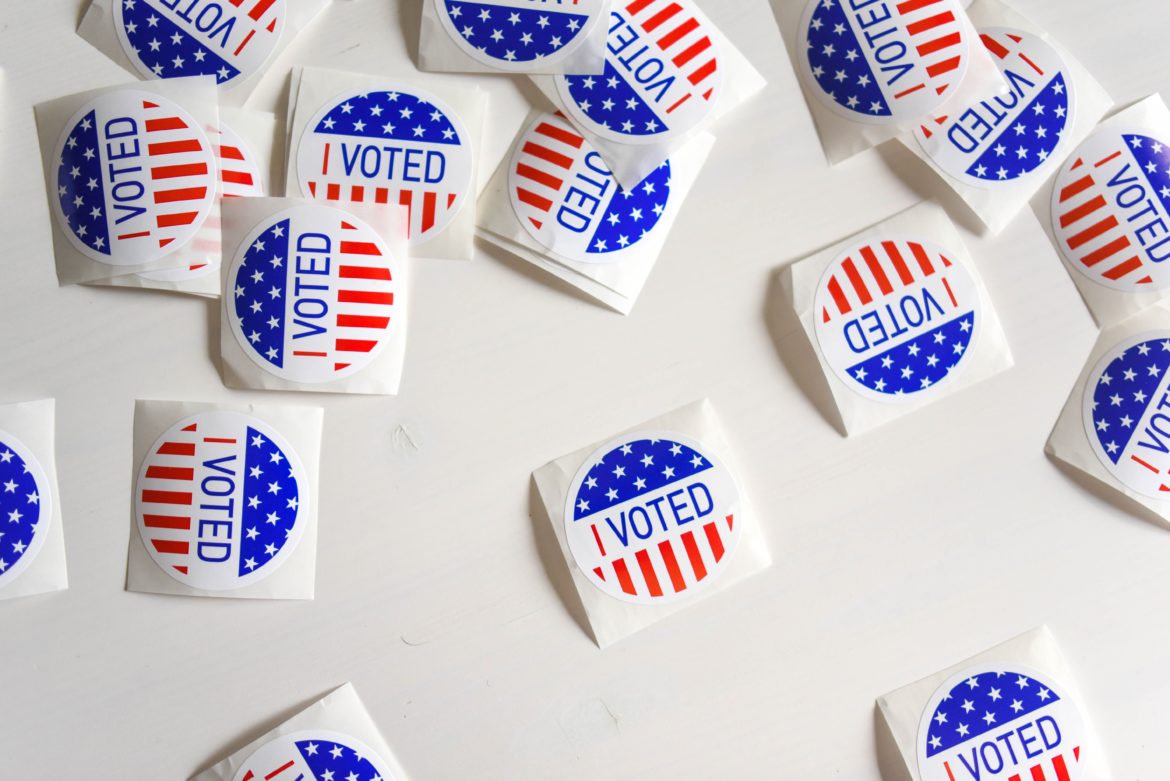The midterm elections are just a few days away! If you’re registered to vote in California, then you probably noticed how there are many state propositions on the ballot. We did some research for each prop and gave a short summary of the most significance implications from each. See our endorsements below!
Proposition 1

Authorizes $4 billion in general obligation bonds for existing affordable housing programs for low-income residents, veterans, farmworkers, manufactured and mobile homes, infill, and transit-oriented housing.
Although this proposition would increase state cost to repay bonds over the next 35 years, it would use 3 billion of the 4 billion bond measure to construct and preserve affordable housing and use the rest of the 1 billion for loans for loans for veterans to buy home and farms. This would definitely benefit working families and many Californians who are experiencing or at risk of homelessness.
Proposition 2
 This is a clarification of a previous 2004 measure where it approved “millionaire’s tax” for mental health bond. It would authorize to sell up to $2 billion of those unused bonds for permanent housing and connected services for homeless people who are mentally ill.
This is a clarification of a previous 2004 measure where it approved “millionaire’s tax” for mental health bond. It would authorize to sell up to $2 billion of those unused bonds for permanent housing and connected services for homeless people who are mentally ill.
Prop 2 won’t raise taxes and will not affect the current state budget. It will help those who are suffering from mental illness in stable housing off the streets and into comprehensive mental health services and addiction treatment.
Proposition 3
 This would authorize $8.877 billion in state general obligation bonds for various infrastructure projects that would increase state cost to repay bonds that average $430 million per year over 40 years. It would be sold to be used for water and environmental projects.
This would authorize $8.877 billion in state general obligation bonds for various infrastructure projects that would increase state cost to repay bonds that average $430 million per year over 40 years. It would be sold to be used for water and environmental projects.
This proposition promises that it could fund various water and environmental projects. However, a similar measure was passed in 2014 and there are still several billion dollars to be used. Prop 3 doesn’t call for as much oversight as many previous statewide water bond issues. Also, it would give money to organizations in an industry where it has not produced one drop of new, usable water. Ultimately, this will benefit billionaire stakeholders. Even though it promises communities cleaner water and help ensure that disadvantaged communities can access safe drinking water, this is a “pay to play” tactic that will use taxpayer money but not benefit everyone.
Proposition 4
 Authorizes $1.5 billion in bonds, to be repaid from the state’s General Fund, to fund grants for construction, expansion, renovation, and equipment of qualifying children’s hospitals.
Authorizes $1.5 billion in bonds, to be repaid from the state’s General Fund, to fund grants for construction, expansion, renovation, and equipment of qualifying children’s hospitals.
California Children’s Hospitals provide specialized care for over 2 million sick children each year—cancer, sickle cell, organ transplants—no matter what families can pay. Also, it will increase capacity, provide the latest technology, and advance pediatric research to cure more children.
Proposition 5
 This proposition will allow homeowners who are over 55, severely disable, and/or victims of disaster to transfer the lower taxable value of their older home to new home even if it is more expensive.
This proposition will allow homeowners who are over 55, severely disable, and/or victims of disaster to transfer the lower taxable value of their older home to new home even if it is more expensive.
It may give many seniors/severely disabled to move near family or purchase more practical, safer homes. However, many who are taking advantage of this are wealthy homeowners who want to move to new homes yet will keep their old (lower) property taxes. This prop will remove many current rules: home can’t be worth more than your previous home, it can only be one time, and it must be in the same county. A yes vote means they can buy a new home for any price and as many times as they want in any part of the state. Also, it is heavily supported by the California Association of Realtors PAC which it has spent $10,204,825 dollars to make sure this proposition passes. If this passes it would cut $1 billion in local revenue from public schools, fire, police, health care.
Proposition 6
 This proposition is a repeal to the 2017 transportation law’s designation of taxes and fees for road repairs and public transportation.
This proposition is a repeal to the 2017 transportation law’s designation of taxes and fees for road repairs and public transportation.
This would eliminate $5 billion annual funding for highway and road maintenance and repairs as well as local transit programs. It would also stop thousands of future projects involving road safety and congestion relief for many California communities.
Proposition 7
 Gives Legislature the ability to change Daylight Saving time period by a two-thirds vote, if changes are consistent with federal law.
Gives Legislature the ability to change Daylight Saving time period by a two-thirds vote, if changes are consistent with federal law.
This proposition doesn’t really do much. It just gives the state legislature permission to discuss how they could change Daylight Savings time. We don’t have any particular stance on this one, except for: Sure?
Proposition 8
 Limits the charges to 115% of the costs for direct patient care and quality improvement costs, including training, patient education, and technology support. This will require rebates and penalties if charges exceed the limit. It will also require annual reporting to the state regarding clinic costs, patient charges, and revenue. Prop 8 will prohibit clinics from refusing to treat patients based on the source of payment for care.
Limits the charges to 115% of the costs for direct patient care and quality improvement costs, including training, patient education, and technology support. This will require rebates and penalties if charges exceed the limit. It will also require annual reporting to the state regarding clinic costs, patient charges, and revenue. Prop 8 will prohibit clinics from refusing to treat patients based on the source of payment for care.
This propositions brings some very good points in trying to improve the dialysis clinic industry but what is very clear is that there is no real prediction that this will work. This a very complicated issue but there needs to be better regulation of the healthcare industry. Corporations, in response, might close their clinics or increase the cost of dialysis so they will be unable to reach that cap. This a risk that less than one percent of Californians actually use and does not risk dialysis patients lives.
Proposition 10
 This prop will repeal a state law that currently restricts the scope of rent control policies that cities and other local jurisdictions may impose on residential property.
This prop will repeal a state law that currently restricts the scope of rent control policies that cities and other local jurisdictions may impose on residential property.
It would introduce law control statewide and help keep tenants in their homes rather than being pushed into homelessness. It does repeal Costa-Hawkins Rental Housing Act, which protects seniors and veterans. Although it does not solve the entire housing crisis, it is a step in the right direction as it can give relief to those who are struggling to pay rent like working families.
Proposition 11
 It would ensure that EMT ’s will be on call during meal and rest breaks.
It would ensure that EMT ’s will be on call during meal and rest breaks.
The proposition if passed will put EMT’s physical and mental health in jeopardy. Many of them work 12-hour shifts with low pay, frequently without breaks, and work in some of the most traumatic of environments. Although this proposition seems like it benefits anyone who needs immediate emergency assistance and help them get more proper training, it disadvantages EMT workers especially those who work in the private sector. Private sector companies are trying to avoid going to court by having Californians make the difficult decision on whether EMTs deserve a proper break or get a lower paycheck.
Proposition 12
 This would establish minimum pen size requirements for confining certain farm animals. It includes having egg-laying hens be cage-free. It also prohibits sales of meat and egg products from animals confined in non-complying standards, even if the products come from out of state, by 2022.
This would establish minimum pen size requirements for confining certain farm animals. It includes having egg-laying hens be cage-free. It also prohibits sales of meat and egg products from animals confined in non-complying standards, even if the products come from out of state, by 2022.
The proposition isn’t perfect. It will take a lot of enforcement from the state and will make it more expensive to buy certain foods, but it will change the industry on how we think about our food. It makes sure everyone in California can make better ethicals choices when trying to get healthier food choices.
By: Wuendy Calmos

